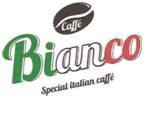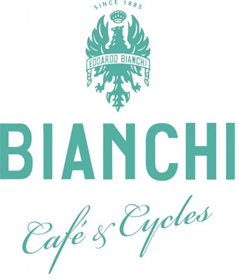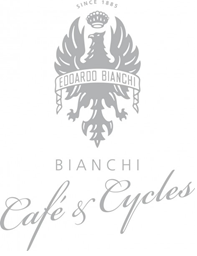An application was filed to register the device mark CAFFÉ BIANCO SPECIAL ITALIAN CAFFÉ (Figure 1) in Classes 30, 35 and 43 (M1502871).

Figure 1
The owner of two EU device marks for BIANCHI CAFÉ & CYCLES (EU Mark 013680897, Figure 2 and EU Mark 009576893, Figure 3), which had been registered in Classes 35 and 43 by Edoardo Bianchi in 1885, opposed the application.

Figure 2

Figure 3
The Hungarian Intellectual Property Office (HIPO) granted the opposition for Classes 30 and 43, but rejected it for Class 35.
First, the HIPO held that although EU Mark 009576893 contained the word element 'Binachi', it was more like a coat of arms than a word mark. As such, there was a conflict only between the applied-for mark and EU Mark 013680897.
Second, the HIPO held that the list of goods and services in Class 35 that were covered by the opponent's mark were the "retail of vehicles, bicycles etc", whereas those covered by the applied-for mark were the "retail and wholesale of Italian coffee". As such, the HIPO held that the services were not similar and granted the applied-for mark protection in Class 35.
The opponent requested a review of this part of the HIPO's decision by the Metropolitan Tribunal. The tribunal disagreed with the HIPO and refused the applied-for mark protection in Class 35. The tribunal noted that the applicant did not contest the likelihood of confusion between its mark and EU Mark 013680897, which covered, among other services, food and drink services in Class 43. As these services are similar to the retail and wholesale of Italian coffee, the tribunal held that the services covered by both marks were similar (1.Pk.22.075/2017).
In this case, the likelihood of confusion between the marks at issue was uncontested, as the dominant word elements were 'Bianco' and 'Bianchi'. As such, the Metropolitan Tribunal considered only the similarity of the services covered by each mark.
In this regard, the HIPO took a traditional approach, bearing in mind the classification and examining only the services in Class 35, which were different.
However, the tribunal took a different approach and examined the services covered by the two marks in their totality, disregarding their classification. Arguably, this complex method of examination is convincing.
For further information on this topic please contact Alexander Vida at Danubia Patent & Law Office LLC by telephone (+36 1 411 8700) or email ([email protected]). The Danubia Patent & Law Office website can be accessed at www.danubia.hu.
This article was first published by the International Law Office, a premium online legal update service for major companies and law firms worldwide. Register for a free subscription.



